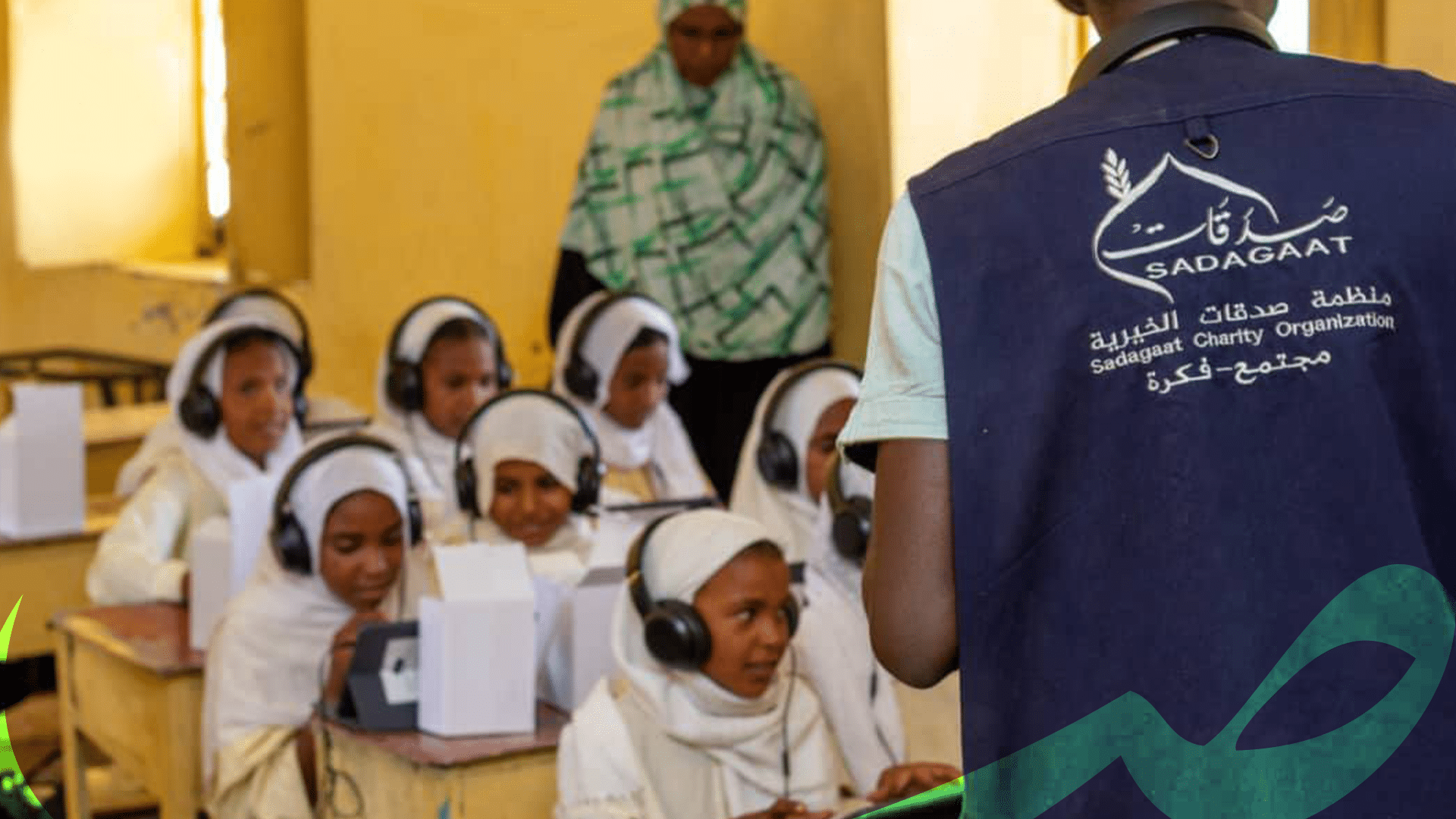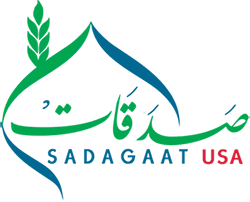Introduction
Education is a cornerstone for development and progress in any society. In Sudan, the challenges to providing quality education are immense due to political instability, economic crises, conflicts, and natural disasters. However, various education programs, both governmental and non-governmental, are striving to overcome these barriers and enhance learning opportunities for Sudanese children and youth. At Sadagaat-USA, we are committed to supporting and expanding these vital initiatives to create a brighter future for Sudan.
The Barriers to Accessing Quality Education in Sudan
Lack of Infrastructure and Resources
One of the primary challenges facing Sudan’s education system is the lack of adequate infrastructure and resources. Many schools lack proper classrooms, teaching materials, and basic amenities like water and sanitation facilities. This issue is particularly severe in remote and conflict-affected areas, where educational facilities are often damaged or destroyed.
Teacher Shortages and Low Qualifications
Sudan faces a significant shortage of qualified teachers. Many educators lack proper training and support, which affects the quality of education. Additionally, teacher migration to other sectors or neighboring countries exacerbates this challenge, leaving many schools understaffed and students underserved.
Poverty and Economic Instability
Poverty and economic instability are major barriers to education in Sudan. Many families struggle to afford school fees, uniforms, and other related costs, forcing them to prioritize immediate needs over schooling. This leads to high dropout rates, especially among the poorest communities.
Displacement and Conflict
Ongoing conflicts and natural disasters have displaced millions of Sudanese, disrupting access to education. Displaced children and youth face additional challenges in accessing schooling, such as lack of documentation, language barriers, and trauma from their experiences.
Gender Disparities
Girls in Sudan face disproportionate barriers to education, including cultural norms, early marriage, and safety concerns. These factors contribute to lower enrollment and completion rates for girls compared to boys, limiting their opportunities for future success.
Weak Education Governance
Inefficient education management, limited funding, and lack of coordination between different levels of government hinder the effective delivery of education services in Sudan. These governance issues create gaps in policy implementation and resource allocation, further impacting education quality and access.
Key Education Programs and Initiatives in Sudan
Accelerated Learning Program (ALP)
The Accelerated Learning Program provides condensed curricula to help out-of-school children and youth catch up on missed learning and reintegrate into the formal education system. This program is crucial for addressing the educational needs of displaced and disadvantaged children.
Community-Based Education (CBE)
Community-Based Education initiatives establish learning centers within local communities, often in remote areas, to improve access to education. These centers tailor curricula to local needs and provide flexible learning options for children who cannot attend traditional schools.
Teacher Professional Development
Programs that provide in-service training and support aim to improve the skills and qualifications of Sudanese teachers. These initiatives focus on enhancing teaching methods, classroom management, and subject knowledge to improve education quality.
School Rehabilitation and Construction
Efforts to rebuild and construct new school facilities, particularly in conflict-affected regions, are essential for expanding access to learning spaces. These projects ensure that children have safe and conducive environments for their education.
Inclusive Education
Inclusive education initiatives aim to improve the inclusion of children with disabilities, girls, and other marginalized groups in the education system. These programs work to remove barriers to education and promote equal opportunities for all students.
Early Childhood Education
Early childhood education programs promote access to quality pre-primary education to lay a strong foundation for children’s learning and development. These initiatives are critical for preparing children for success in their later schooling years.
Technical and Vocational Education
Efforts to strengthen technical and vocational education and training (TVET) prepare youth for the job market. TVET programs provide practical skills and knowledge that are directly applicable to employment opportunities, helping to reduce youth unemployment.
Improving the Effectiveness of Education Programs in Sudan
Strengthening Coordination and Collaboration
Fostering stronger partnerships between the government, international organizations, and local communities is essential for aligning priorities, sharing resources, and ensuring a cohesive approach to education. Collaboration can enhance program effectiveness and sustainability.
Increasing and Diversifying Funding Sources
Advocating for greater government investment in education and exploring innovative financing mechanisms, such as public-private partnerships and community-based funding models, can provide the necessary resources to expand and sustain education programs.
Improving Data Collection and Monitoring
Developing robust data systems to track enrollment, attendance, learning outcomes, and other key indicators is crucial for informing decision-making and guiding program improvements. Accurate data helps identify gaps and measure the impact of education initiatives.
Enhancing Teacher Training and Support
Investing in comprehensive pre-service and in-service teacher training programs, as well as providing ongoing professional development and incentives, can attract and retain qualified educators. Improved teacher quality directly impacts student learning outcomes.
Promoting Community Engagement and Ownership
Empowering local communities to participate in the design, implementation, and monitoring of education programs ensures that they are responsive to local needs and priorities. Community engagement fosters a sense of ownership and accountability.
Addressing Barriers to Access and Equity
Implementing targeted interventions to support the most marginalized groups, such as girls, children with disabilities, and displaced populations, is essential for ensuring inclusive and equitable education. These interventions can help break down barriers and promote equal opportunities.
Fostering Innovation and Scalability
Encouraging the piloting and scaling of evidence-based, cost-effective education models that can be replicated across different regions and contexts in Sudan is key to addressing the diverse educational needs of the country. Innovation can drive sustainable improvements in education.
The Role of Sadagaat-USA in Supporting Education Programs in Sudan
Comprehensive Educational Support
At Sadagaat-USA, we are committed to providing comprehensive educational support to underserved communities in Sudan. Our programs focus on addressing the unique challenges faced by these communities and ensuring that children have access to quality education.
Building and Rehabilitating Schools
We work on building and rehabilitating schools to provide safe and conducive learning environments. By constructing new facilities and repairing damaged ones, we ensure that children have the necessary infrastructure for their education.
Supporting Teacher Training
We support teacher training programs to improve the quality of education. By investing in the professional development of teachers, we enhance their skills and knowledge, which in turn benefits their students.
Providing Learning Materials
We provide essential learning materials, including textbooks, stationery, and teaching aids, to schools and students in need. These resources are crucial for effective teaching and learning.
Promoting Inclusive Education
Our initiatives focus on promoting inclusive education by addressing the barriers faced by marginalized groups. We work to ensure that all children, regardless of their background or circumstances, have the opportunity to learn and succeed.
Enhancing Community Involvement
We engage local communities in our education programs to ensure that they are involved in the planning and implementation processes. Community involvement is key to the success and sustainability of our initiatives.
Aligning with Global Goals
Sadagaat-USA aligns its efforts with the United Nations Sustainable Development Goals, particularly those related to education. Our commitment to these global goals underscores our dedication to creating a better future for all.
How You Can Help
Donate
Your donations make a significant difference in the lives of children and communities in Sudan. By contributing to Sadagaat-USA, you support our education programs and help us create lasting change.
Volunteer
Volunteering your time and expertise is another powerful way to support our mission. Whether you are an educator, professional, or have other skills, your contribution is invaluable.
Spread the Word
Raising awareness about our work helps us reach more people and expand our impact. Share our mission with your network and encourage others to get involved.
Partner with Us
We welcome partnerships with other organizations, businesses, and individuals who share our vision. Together, we can amplify our efforts and achieve greater results.
Conclusion
Improving access to quality education in Sudan is a complex and multifaceted challenge that requires a comprehensive, collaborative approach. By addressing the key questions and concerns outlined in this blog post, policymakers, practitioners, and the public can work together to strengthen and expand education programs that empower Sudanese children and youth to reach their full potential. As progress is made, it will be essential to continue exploring new strategies, learning from successes and failures, and adapting to the evolving needs of the Sudanese education system.













